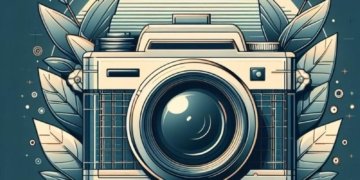The skills entered to build a strong career in arts are important for class 12 students and fresh graduates to boost their employability. Thinking critically about subject matters, challenging assumptions, solving problems creatively, and researching information efficiently are some of the prerequisite skills for a career in arts. This article offers further clarity on the skills needed to build a strong arts career.
Research
Success in the arts careers also depends on an individual’s ability to conduct research. This research should be unbiased and must adhere to the ethical guidelines of the discipline. Research within arts careers may not be about experimenting in laboratories, but it still carries importance, especially for those who wish to become social scientists, enter policymaking, or pursue careers in journalism.
For instance, a social scientist studying a particular social problem (like educational inequality) has to conduct surveys, analyse historical data, and review academic literature to understand the problem, review its impact, and prove their hypothesis. This research may later be used to inform policy decisions and can ultimately contribute to social progress. That said, research and analysis skills are critical for almost all arts careers since people in various job roles may need to research ideas and gather relevant information to support their work.
Way to develop research skills
Social science courses include qualitative and quantitative research papers in their curriculums, helping students understand the basis of statistical principles like mean, median, and mode. You can also sharpen your research skills by learning how to reference, fact-check, and cite your sources to avoid claims of plagiarism. Understanding how to use academic archives and databases (like the NSSO) can help improve research skills. It is also a good idea to focus on hands-on research projects and case studies.
Critical thinking
Building a career in arts and humanities requires developing critical thinking skills. Critical thinking is the process of analysing available facts, information, and evidence to draw sound conclusions. It is a self-guided mode of thinking which makes people reason to reach judgements on issues and topics. Critical thinking skills are key to a strong career in the fields of arts and humanities because most careers need professionals to assess situations and problems critically.
For instance, a journalist must have critical thinking abilities to evaluate sources, verify facts, and detect biases before reporting a story. They should be able to question assumptions and analyse different perspectives. Therefore, to build a career in the field of journalism, you need to have strong critical thinking capabilities that can help you present well-researched and unbiased information to people.
Ways to develop critical thinking
The course curriculum in arts and humanities generally focuses on integrating critical thinking among students naturally. You can further hone this skill by engaging in exercises like debates, research projects, literature reviews, and case study analysis.
Interpersonal skills
Employers looking to hire arts and humanities graduates often list ‘should be a team player’ as one of the eligibility criteria for job roles. Being a ‘team player’ means possessing good interpersonal skills. Interpersonal skills are the skills that help you collaborate with others to make you a team player. These skills include teamwork, motivation, and empathy. Strong interpersonal skills help professionals build relationships, manage crises, and coordinate effectively across different departments.
For instance, a public relations specialist has to collaborate with clients, media personnel, and internal teams to create and distribute brand messaging. They have to work closely with writers, designers, and executives to create the message and ensure its approval.
Ways to develop interpersonal skills
You can develop your interpersonal skills by practising active listening, working on empathy, and cultivating emotional intelligence. Participating in group projects and assignments during course years also helps develop these skills.
Communication skills
Good communication skills ensure that the individual can communicate ideas to different audiences in a clear and concise way. This skill includes both written and verbal communication. Most job roles within arts careers like teaching, journalism, and marketing require the professional to make presentations to a large group of people and/or present ideas in writing. They may be responsible for drafting proposals, written content pieces, ad copies, etc., depending on the role of the individual. All this requires strong communication abilities.
For instance, a marketing professional has to create innovative and compelling campaigns for brands that speak to their target audience. They need to pitch ideas to stakeholders and create advertisements that can effectively communicate the brand’s message in a clear way. Similarly, teachers need to have strong communication skills to explain theories and concepts to students in the class and answer questions to clear doubts.
Ways to develop good communication skills
Good communication skills depend on practice. You can practice public speaking, participate in debates, practice journaling, and even learn a foreign language to polish your communication skills.
Writing skills
Most arts and humanities careers require professionals to possess good writing skills. Whether you are a writer, journalist, policymaker, or teacher, you will have to engage in written communication to form and express your ideas and arguments. This makes a good command of written skills essential.
For instance, social science researchers have to draft research proposals to get grant issues, fellowships, and more. After the research is completed, they need to publish papers where the study problem, methodology, and results are clearly outlined. Similarly, lawyers need to draft legal agreements and case arguments based on research. They have to connect researched judicial facts with the facts relevant to the case to make an argument. All this makes writing skills critical for a career in arts.
Ways to develop good writing skills
You can develop good writing skills by drafting essays, journaling regularly, and practising using creative writing exercises. Reading extensively can also help expand your vocabulary and improve your writing style.
Summing it up
Skills needed for careers in arts and humanities are different from those required in science and commerce. Arts graduates are expected to possess better critical thinking and problem-solving abilities to tackle issues in new and innovative ways. Similarly, they are also required to have good research, communication, and writing skills to make fact-based arguments and convey the same to others. Lastly, arts graduates must have good interpersonal skills that help them thrive in a collaborative environment.
While these skills are core requirements, some jobs may also require certain technical skills. Arts graduates can acquire additional technical and improve their employability by pursuing further education. To enrol in courses abroad, they can secure education loans from NBFCs https://www.bajajfinserv.in/ and banks. All the information about such loans is listed on their online marketplace https://www.bajajmall.in/emi-store and websites.
P.O Bagarji Town Bagarji Village Ghumra Thesil New Sukkur District Sukkur Province Sindh Pakistan 65200.
Wiki Blogs News always keeps careful online users to provide purposeful information and to keep belief to provide solution based information.
This release was published on openPR.















